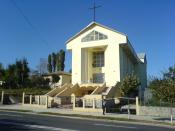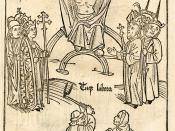Jacob Fugger - German mercantile and banking dynasty that dominated European business in the 15th-16th centuries. The family business traces its origins to Hans (Johannes) Fugger (1348-1409), a weaver in Augsburg. Under his grandsons Ulrich (1441-1510), Georg (1453-1506), and especially Jakob (1459-1525), the company became established in international trade, including the lucrative spice and slave trades, and built a fortune in copper and silver mining. Their loans to various kings and emperors and involvement with the sale of papal indulgences made family members highly influential in European politics and earned them the criticism of Martin Luther.
Charles V - Holy Roman emperor (1519-56), became emperor by providing funds with which the ambitious Habsburg could bribe electors.
Magyars - Any member of the dominant ethnic group in Hungary. Speakers of a Finno-Ugric language, they migrated from their early home in the region of present-day Bashkortostan in eastern European Russia across the southern Russian and Ukrainian steppes into the northern Balkans in the 9th century.
After collisions with neighboring peoples, the Magyars crossed the Carpathians and settled in the middle basin of the Danube River in the late 9th century, subjugating Slavs and other peoples there. Skilled and fierce horsemen, they raided deep into the heart of Europe in the 10th century and were greatly feared until their defeat by Otto I at the Battle of Lechfeld in 955. They adopted Christianity in the 11th century under King Stephen I, the founder of Hungary, who made the kingdom part of the European community.
Huns - Any member of a nomadic pastorialist people who invaded southeastern Europe c. AD 370.
Roman Catholic Church - The Roman Catholic Church has had a profound effect on the development of Western civilization and has been responsible for introducing Christianity in many parts of the world. It...


